Karel Schwarzenberg: “I can't understand those who, having lived up to the 21st century, advocate the death penalty”
-
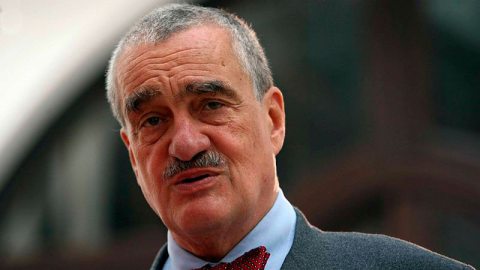
- Karel Schwarzenberg, Chairman of the Foreign Affairs Committee of the Parliament of the Czech Republic
October 8, well-known Czech politician and public figure Karel Schwarzenberg took part in human rights activities together with representatives of the European embassies, members of the Working Group on the Death Penalty in Belarus.
In the first half of the day, the Belarusian PEN Center hosted a round table, where Mr. Schwarzenberg met with members of the organization – famous writers Uladzimir Arlou, Adam Hlobus, the head of the Union of Belarusian Writers Barys Piatrovich, the head of "Viasna" Ales Bialiatski, the head of the PEN Center Andrei Khadanovich and diplomats - Ambassador of the Czech Republic Milan Eckert, British Ambassador Bruce Bucknell, charge d'affaires of Bulgaria in Belarus Ivaylo Ivanov and Apostolic Nuncio in Belarus Archbishop Claudio Gugerotti. In the evening, Karel Schwarzenberg, together with representatives of the embassies of the Czech Republic, Great Britain, Bulgaria and the head of the Human Rights Center "Viasna" took part in a public meeting in the Gallery W.
During both events, held in the framework of the Week against the Death Penalty in Belarus, the panelists emphasized the value aspect of the problem. Many sad things which took place in the 20th century, as well as today's events prove the urgent need for solidarity and unanimity of the whole society for the sake of saving each individual human life. 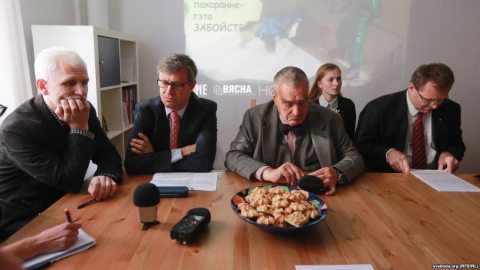
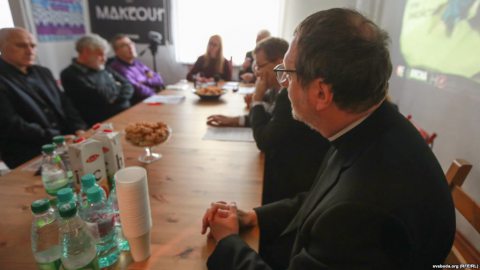
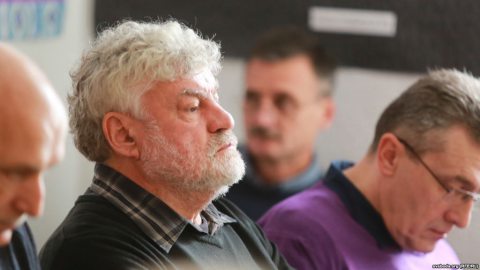
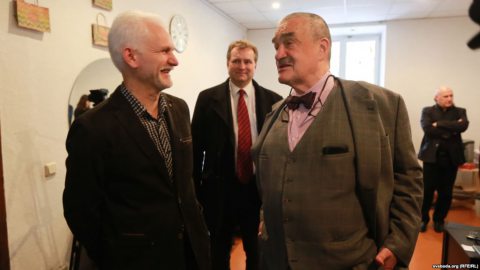
Within the walls of the writers' organization, the human rights activist and writer Ales Bialiatski noted that the issue of the death penalty also applies to the fate of Belarusian writers. He recalled that in the 1930-ies most of Belarusian writers were killed by Stalin. "I view the existence of the death penalty in Belarus today as a direct result of Stalin's era, as Stalin's legacy for our people. The war, which continues not far from Belarus, where people are dying every day, reduces the value of human life. This impairment of life, however, shall not reduce the standards for us. Belarusian culture and literature have always been humane in their essence, have always stood for humanity in the people,seeking this humanity even in the most adverse conditions and situations. Belarusian culture is not a "Russian world", it is a struggle for a civilized man," said Ales Bialiatski.
Karel Schwarzenberg considers the death penalty in the context of an ordeal for mankind, brought by the previous century as well.
"Today we are talking about the death penalty, but I do not know how people who have seen the twentieth century, and have not yet taken a decision on this matter. I was born in 1937, in tough times, and even before I finished school hundreds of thousands of people were executed across Europe. And if you remember these murders in Europe, it is simply impossible to imagine how a modern man can support the death penalty.
Yes, emotions play a very important role in this regard, because if there is another terrible murder, for example, the murder of a child, then there will immediately be the people who will advocate for the death penalty. But, in my opinion, it can not be the ultimate argument for the death penalty, as we cannot rule out the possibility of a miscarriage of justice. A killed man cannot be returned to life.
The most interesting argument I have ever heard is that the life imprisonment is costly to the state. But I ask, what choice do you think is the best: to feed several prisoners for a lifetime, or perhaps execute a few innocent people?
And you can not deny that the right to life is one of the fundamental rights of a man.
It is clear that the fight against the death penalty sometimes may be very unpopular, someone can say that you are helping the criminals. I am also very sorry for the victims of these criminals. But will it help the victims if their killers are killed too? In every country of the world, there are times when a man must oppose the majority. The twentieth century has taught us that."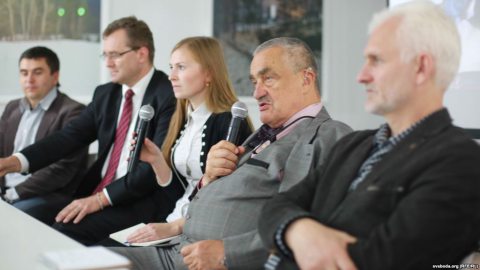
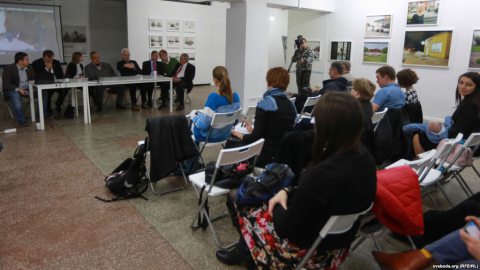
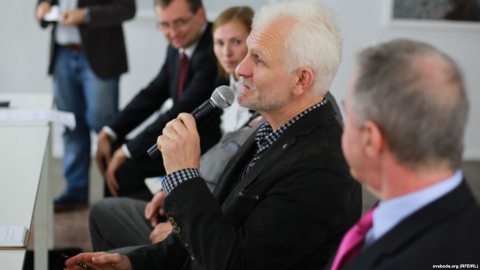
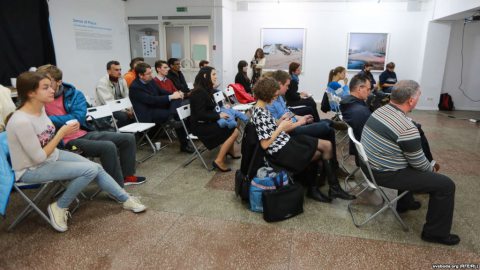
In the discussions, Mr. Schwarzenberg, chairman of the Foreign Affairs Committee of the Parliament of the Czech Republic, has repeatedly stressed the necessity to struggle against the death penalty primarily from a moral viewpoint andthe importance of separating the very existence of the death penalty in the country from the political sphere. "The death penalty is not about a confrontation between East and West, because, as you know, the big opponents in the political arena, China and the United States – both have the death penalty," he said.
Mr. Shwarzenberh, who has been forking on human rights issues for a long time, including 25 years in the countries of our region, stated the necessity of creating a wider public circle for the abolition of the death penalty with the aim to draw the attention of as many people as possible, including non-political ones. However, since the main task of the abolitionists is to preserve human life, he is not opposed to work with even the most "strange" regimes, even if for them it's just a matter of improving their image as "the death penalty is usually used by the regimes whichdon't enjoy much respect in the international community". Referring to his own experience, Karel Schwarzenberg also said that in some countries it proved to be very useful to cooperate with the church and religious organizations even if the church was very closely linked with the ruling regime.
The representative of the Catholic Church, Archbishop Claudio Gugerotti stressed that the doctrine of the modern Catholic Church clearly states that the death penalty is unacceptable and has always been so, but the problem is not religion as such, as the religion itself, as recent events in the world, can provoke an outbreak of aggression. According to the archbishop, the problem lies in the fact that society is not prepared to take up the values which are promoted by the church. "As said by Karel Schwarzenberg, the death penalty is not a problem of the political sphere, it is a problem of all of us and all over the world. And the question is, what do we do in everyday life and how we promote the idea of inviolability of human life... Changing social attitudes takes much time. And in my opinion, education can help here. The Catholic Church, and, I think, the Orthodox Church, take efforts in their areas, but our efforts alone are not enough..."
Participants of the events also stressed that a referendum can not be a solution to the existence of the death penalty in the country. In particular, it was said by charge d'affaires of Bulgaria in Belarus, Ivaylo Ivanov: "The fact that in 1996 the population of Belarus voted in favor of the death penalty at a referendum, can not be an excuse for the Belarusian State, executions and death sentences. This is inhumane. The very fact that the country has the death penalty is shameful. I think Belarus is not only the geographical center of Europe, but also the center of civilization. Belarusian people are highly educated and tolerant, but the population does not know much about the death penalty, not everyone knows even about the very fact of its existence in the country. That's why one cannot expect a meaningful vote "for" or "against" the death penalty in Belarus in the near future. I believe that this issue should be resolved by the Parliament and the President of Belarus."
As noted by a representative of the British Embassy David Spires, the Working Group on the Death Penalty in Belarus was formed about five months ago and the number of its participants increases. The working group,represented by embassies of Great Britain, the Czech Republic, Poland, Bulgaria, France, Italy, is ready to work with any organizations that serve the same purpose – the abolition of the death penalty in Belarus.
Photos by svaboda.org










